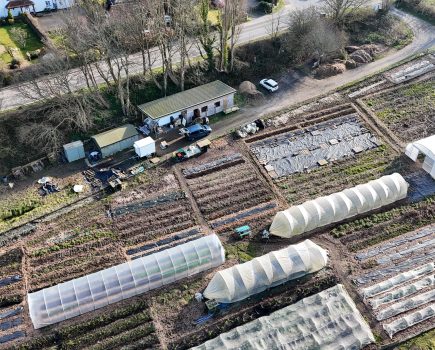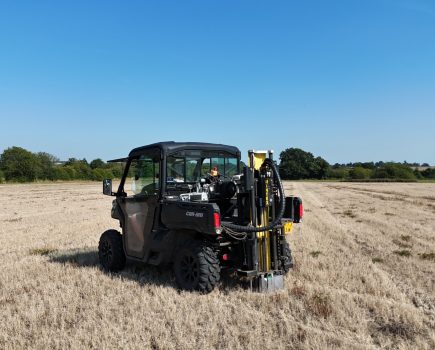Here Justin Ellis, Virgin Money Agricultural Business Manager, gives us his thoughts.
Having just returned from a fascinating trip to Morocco I was most struck, in an agricultural sense, by the way communities in the eastern parts of the country manage to utilise the hugely limited water resources they have.
The Todra River Valley is an oasis in the desert at the foot of the Atlas Mountains, with limited spring water supplied through a network of manmade overground water channels that allows the production of food and livestock feed over a 45km stretch of what would otherwise be desert, growing crops such as lucerne, wheat, barley and dates.
The value of the limited but free water resource as a staple was obvious, with systems to share it out evenly over the length of the valley forged over centuries. The area is extremely productive and, while only supplying the local community, it is critical to the local economy of the region.
This week South East Water released its 25 Year Environment Plan. We also learned of some work they sponsor on reducing waste, whereby various non-domestic users undertook a water usage audit, resulting in 54% less consumption per site after the recommended improvements were completed. Admittedly, these weren’t farm sites, but we also saw an example of substantial on-farm savings using technology that allowed intervention in unexpected usage patterns.
It is clear that the future requires real focus on preserving the precious resource we already have, reducing waste while working collectively to ensure it delivers value to all our communities.
As climate change and population growth put additional pressure on water availability, the agricultural sector must adapt to changing conditions and implement water management strategies to maintain productivity and resilience. In the debate around UK food security, water security must also be considered to meet the following challenges:
- Climate change has led to more erratic weather patterns, including prolonged droughts, intense rainfall and increased temperatures. These changes can disrupt traditional farming practices and threaten water availability.
- As the UK population grows, demand for water increases, putting additional pressure on resources. This competition for water can affect agricultural water use.
- Outdated or inefficient water infrastructure can lead to water loss and reduced availability for agriculture. Investment in modernising water systems is needed to address this challenge.
- Strict regulations governing water use can limit farmers’ ability to access water when they need it most. Balancing the needs of agriculture with environmental and social concerns is a complex challenge.
- Pollution from agricultural runoff, such as fertilisers and pesticides, can degrade water quality, affecting both farming operations and surrounding ecosystems.
As water becomes more scarce, here are some of the solutions farmers are already investing in and delivering benefits:
- More efficient irrigation methods such as drip irrigation and precision agriculture to improve water use efficiency, alongside more accurate weather forecasting.
- Building new on-farm reservoirs or expanding existing ones to help capture excess rainfall during wet periods for use during dry periods.
- Recycling and reusing water, such as treated wastewater, to supplement water supplies and reduce reliance on freshwater sources.
- Using practices such as cover cropping, no-till farming and crop rotation to improve soil health and water retention, reducing the need for irrigation.
- Collaboration between farmers, water authorities, researchers and policymakers aimed at developing comprehensive water management plans that address the needs of all stakeholders.
- Government programmes and incentives to encourage farmers to adopt water-saving technologies and practices, such as grants for efficient irrigation and water storage systems.
- Educating and training farmers on water management best practices to help them make informed decisions and implement effective strategies.
Water security is a vital concern for UK agriculture, impacting the industry’s productivity and sustainability, and it is essential for the agricultural sector to adapt and implement innovative water management solutions. By improving water efficiency, investing in infrastructure and fostering collaboration among stakeholders, the UK can navigate the complexities of water security and maintain a thriving agricultural sector that supports both its people and its economy.
Investment in infrastructure, technology and research and development is going to be a critical element to this, together with lateral thinking such as reducing peak yield to deliver more consistency and reliability. Much of the solution will require some form of investment, and Virgin Money has a long heritage of working with and supporting the farming industry and working closely with customers on any requirements, both short and long term.
We understand how important it is for any farming business to invest in the future, and we are fully committed to helping our farming customers turn their plans into success in every area of their operations, including in the management of this fundamentally important resource.







